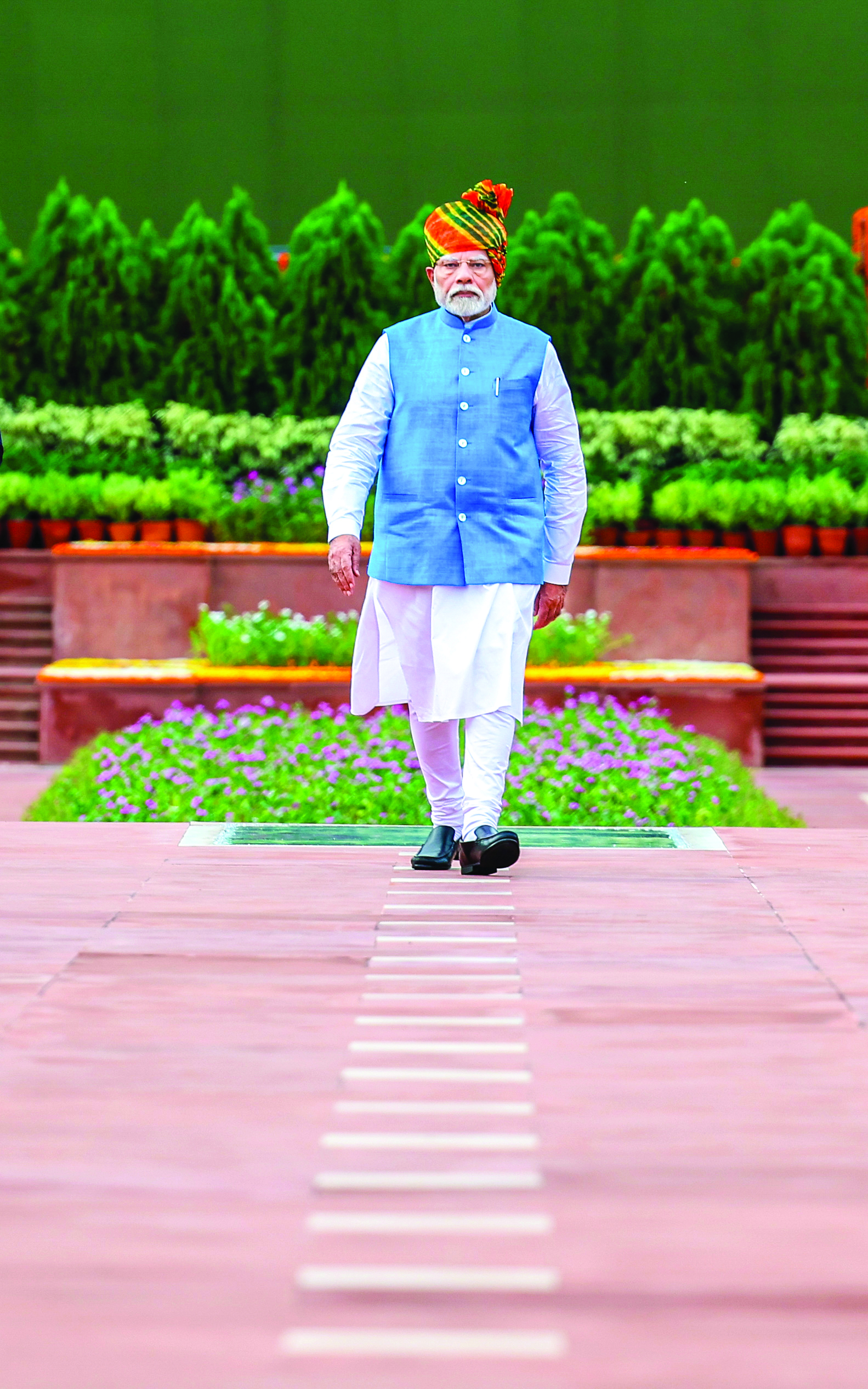NEW DELHI: ‘One Nation, One Election’ promotes unity and democracy, reducing costs and enabling funds for development and welfare.
In a powerful Independence Day speech from the historic Red Fort, Prime Minister Narendra Modi laid out his ambitious vision for a “Viksit Bharat” (Developed India) by 2047. Notably, the Prime Minister also emphasised the importance of the ‘One Nation, One Election’ initiative on this significant day.
Prime Minister Modi affirmed that implementing ‘One Nation, One Election,’ a key promise made by the BJP in its election manifesto, is a “commitment” of his government. During an interview with ANI, Modi mentioned that a committee, led by former President Ram Nath Kovind, has been tasked with drafting a report on the initiative. He highlighted the positive and innovative suggestions the committee has received, reflecting widespread support and enthusiasm for streamlining the electoral process across the nation.
“One Nation, One Election is our commitment. We have discussed this in Parliament and formed a committee, which has now submitted its report. Many people across the country have given their suggestions, and the committee has received very positive and innovative ideas. Implementing this report could greatly benefit the nation,” Modi stated.
The Prime Minister also reiterated his government’s dedication to ongoing reforms, which he believes are crucial for India to reach its full potential. He acknowledged the challenges posed by frequent elections and called for national unity in support of the ‘One Nation, One Election’ initiative.
“Frequent elections create obstacles in the country’s advancement,” he said, urging all political parties to collaborate for the greater good.
BJP national spokesperson Guruprakash told The Sunday Guardian that ‘One Nation, One Election’ is not just about efficiency; it’s about fostering unity and strengthening the democratic foundation of the country by ensuring that all voices are heard together, in harmony. He emphasised that implementing this initiative would significantly benefit both the nation and its democracy. Aligning elections across the country could drastically reduce the substantial costs of holding separate elections for the central and state governments, allowing financial resources to be redirected toward development and welfare programs.
Guruprakash also noted that this strategy would help avoid the frequent policy paralysis that occurs when governments are constantly in election mode, leading to delays in decision-making and governance. With synchronised elections, the government could focus on long-term planning and policy implementation without the disruptions of ongoing election cycles. This would result in a more stable and efficient governance system, ensuring the democratic process remains strong and effective.
Nitin Nabin, a BJP leader from Bihar and a member of the Bihar Legislative Assembly, told the newspaper that “One Nation, One Election” should be implemented as it would significantly contribute to the nation’s development. He emphasised that this initiative would reduce both the time and cost required to conduct elections, allowing these resources to be redirected toward the betterment and progress of the country. Nabin pointed out that currently, at least three elections are held within a five-year term, consuming nearly half of the government’s time. By implementing “One Nation, One Election,” this time could be saved and utilised for developmental work instead.

